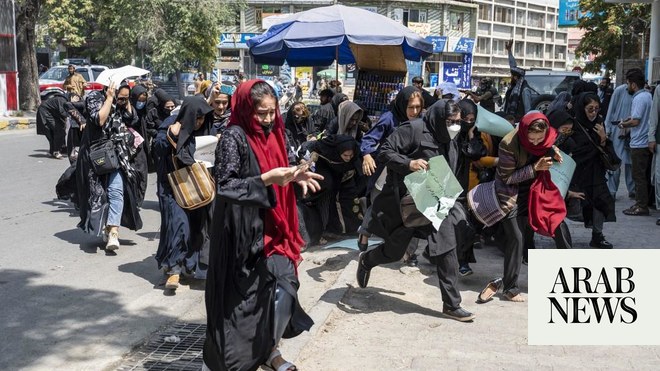
Afghanistan’s Ministry of Education appears to be backtracking on a decision to impose a nationwide singing ban on schoolgirls.
In a letter to school boards last week, which was leaked to the media, Kabul’s Education Department said girls aged 12 and above would no longer be able to sing at public events, unless the events were attended solely by women. The letter also stipulated that girls couldn’t be trained by a male music teacher.
The reason given for the decision was to allow students to focus on their studies. But the announcement caused widespread outrage, with many accusing the government of sympathising with the Taliban, and of promoting gender discrimination.
In protest, women from across the country, including many prominent Afghan leaders, recorded videos of themselves singing and posted these on social media using the hashtag #IAmMySong.
This week the ministry appeared to be rolling back on the decision, saying it is investigating the ban, announced by the director of education in the capital, Kabul. A statement from the ministry said the letter did not reflect its position and that it would assess the issue.
Ahmad Sarmast, the founder of the Afghanistan National Institute of Music, who started the #IAmMySong campaign, urged the ministry to repeal the previous order officially.
“The decree not only violates the musical rights of Afghan girls and deprives them of the healing power of music, it also violates the Afghan constitution, child protection laws and the international convention of children’s rights,” he said.
Women across Afghanistan express themselves through music, with many using it as a coping mechanism in times of violence and war. Prominent singers, musicians and dancers practise their art nationwide.
Many report receiving threats or being asked by their own families to stop. Maram Abdallah, 18, a pianist who is about to graduate from Afghanistan’s National Institute of Music, said she has had to fight her family’s conservative attitudes to be able to play music.
“I was raised in Egypt where my parents attended university and I started playing the piano when I was five years old, but when we moved back to Afghanistan, my Dad wouldn’t let me continue,” she said. Abdallah’s father told her pressure from society was the reason for his veto.
“Music was and is my life. It’s my way of expressing my feelings and dealing with hardship,” she said. “When I was banned from playing, I completely withdrew and fell into a deep depression.”
She said it took her a year to convince her father to let her play. The first time she was allowed to sit down at the piano again, she became overwhelmed with emotion. “I came back to life right then,” she said.
Since then Abdallah has performed around the world, including in the UK and Australia, and she dreams of one day becoming a solo pianist.
“Women singing is part of our culture,” said Shaharzad Akbar, chairperson of Afghanistan’s Independent Human Rights Commission, who sang her protest on social media. “Women have always sung and played instruments at weddings, for example. I remember going to the village as a child, seeing women dance.”
Fahima Mirzaie, a 24-year-old teacher, has been practising Sufism – a mystical form of Islam – since her early teens, and uses music and dance to connect with her faith.
“I identify myself through Sufism. It’s a way for me to reach truth,” she said from a basement gym at a Kabul school where was practising music and dance with her students.
“Singing and dancing is part of what makes Afghanistan. It’s important to share these traditions with children,” she said.
The Afghan government had introduced some “incredibly misogynistic” policies, said Heather Barr, interim co-director of the women’s rights Human Rights Watch.
“I don’t even think they are trying to meet the Taliban in the middle … the negotiation process has maybe opened up space for people in government who oppose women’s rights to use the opportunity and push for policies against women. There are natural allies of the Taliban’s worldview in the government,” she said.
During the Taliban rule of Afghanistan from 1996 to 2001, music was outlawed nationwide and girls weren’t allowed to attend school. “If they could have it exactly that way again, they would,” Barr added.
“I don’t think the Taliban has since changed,” said Fawzia Koofi, an Afghan politician and peace negotiator in the talks in Doha. “Hopefully, if they find a way to practise their ways and ideas in a more open Afghan society, they will change overtime.”












